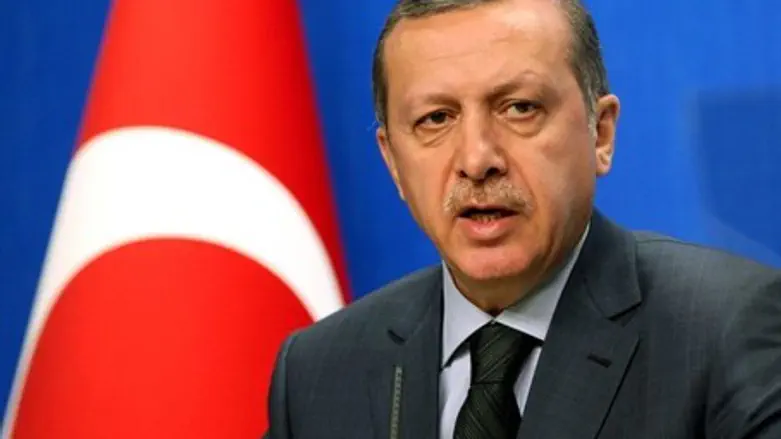
Turkey's prime minister lashed out at international media on Tuesday, accusing news outlets of stirring unrest during the one-year anniversary of mass anti-government protests, AFP reported.
Prime Minister Recep Tayyip Erdogan singled out CNN International, whose reporter was arrested live on air last Saturday while covering street clashes, accusing the network of spying.
"International media organizations who came to Istanbul for provocative and exaggerated broadcasts were left empty-handed," Erdogan charged as he spoke with members of his ruling AKP party in an apparent reference to the incident.
On Saturday, police violently dispersed demonstrators in Istanbul and Ankara as they marked a year since the start of nationwide protests denouncing Erdogan's authoritarian rule.
Riot police fired tear gas and water cannon at protesters on Istanbul's side streets to prevent them reaching the city's iconic Taksim Square, the epicenter of last year's uprising.
News outlets were also targeted, with Turkish police briefly detaining a CNN team in the middle of a broadcast from the square, according to AFP.
"Turkish police released CNN team after half an hour. Officer apologized for another officer who kneed me while I was being detained," CNN's Ivan Watson said on Twitter.
On Tuesday, Erdogan called Watson a "lackey" who had been "caught red-handed" trying to bring chaos to Turkey.
"[CNN] doesn't care about a free, impartial and independent press. They are assigned to work like spies," Erdogan charged.
Last year's wave of protests was sparked by government plans to uproot trees at Istanbul's central Gezi Park and erect a shopping mall on the site.
Erdogan has frequently accused foreign media of dishonesty in covering the three weeks of unrest that left at least eight people dead and thousands injured.
He has also accused social media of stirring up trouble in his country, doing so last year at the height of the protests, when he said that sites like Twitter were “the worst menace to society.”
Most recently, Erdogan moved to block access to Twitter in his country after the site had been used to spread a torrent of anonymous leaks implicating his inner circle in corruption.
However, Turkey’s Constitutional Court ruled on April 2 that the country’s ban on Twitter violated people’s right to freedom of expression and demanded access be restored.
(Arutz Sheva’s North American Desk is keeping you updated until the start of the Shavuot holiday in New York. The time posted automatically on all Arutz Sheva articles, however, is Israeli time.)